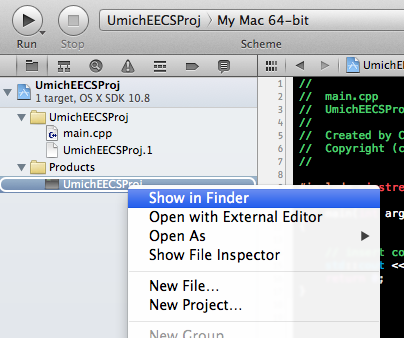May 27, 2017 C comes with libraries which provides us with many ways for performing input and output. In C input and output is performed in the form of a sequence of bytes or more commonly known as streams. Input Stream: If the direction of flow of bytes is from the device(for example, Keyboard) to the main memory then this process is called input. Output Stream: If the direction of flow.
Now let's say you want the user to enter a string that contains a space in it. Since using cin myString won't work (it will only grab the first word and then exit), you decide you need to find a function that will grab a whole line of input. After some Googling, you decide that getline is probably the best way to do it. You add it to your existing code, and this is how your entire program looks. I hope someone out there could really help me. Im trying to store large numbers. As i need to complete my work under Dev-c environment but im not familiar with it as i just started using it recently. The following is my initial coding for my work. /.This is a program to calculate large numbers.
- C++ Basics
- C++ Object Oriented
- C++ Advanced
- C++ Useful Resources
- Selected Reading
C++ provides following two types of string representations −
- The C-style character string.
- The string class type introduced with Standard C++.
The C-Style Character String
The C-style character string originated within the C language and continues to be supported within C++. This string is actually a one-dimensional array of characters which is terminated by a null character '0'. Thus a null-terminated string contains the characters that comprise the string followed by a null.
The following declaration and initialization create a string consisting of the word 'Hello'. To hold the null character at the end of the array, the size of the character array containing the string is one more than the number of characters in the word 'Hello.'
If you follow the rule of array initialization, then you can write the above statement as follows −
Following is the memory presentation of above defined string in C/C++ −
String Input In Cpp
Actually, you do not place the null character at the end of a string constant. The C++ compiler automatically places the '0' at the end of the string when it initializes the array. Let us try to print above-mentioned string −

C++ Get User Input String
When the above code is compiled and executed, it produces the following result −
C++ supports a wide range of functions that manipulate null-terminated strings −
| Sr.No | Function & Purpose |
|---|---|
| 1 | strcpy(s1, s2); Copies string s2 into string s1. |
| 2 | strcat(s1, s2); Concatenates string s2 onto the end of string s1. |
| 3 | strlen(s1); Returns the length of string s1. |
| 4 | strcmp(s1, s2); Returns 0 if s1 and s2 are the same; less than 0 if s1<s2; greater than 0 if s1>s2. |
| 5 | strchr(s1, ch); Returns a pointer to the first occurrence of character ch in string s1. |
| 6 | strstr(s1, s2); Returns a pointer to the first occurrence of string s2 in string s1. |
Following example makes use of few of the above-mentioned functions −
When the above code is compiled and executed, it produces result something as follows −
The String Class in C++
C++ Std String Userinput
The standard C++ library provides a string class type that supports all the operations mentioned above, additionally much more functionality. Let us check the following example −
Input String In Dev C++
When the above code is compiled and executed, it produces result something as follows −